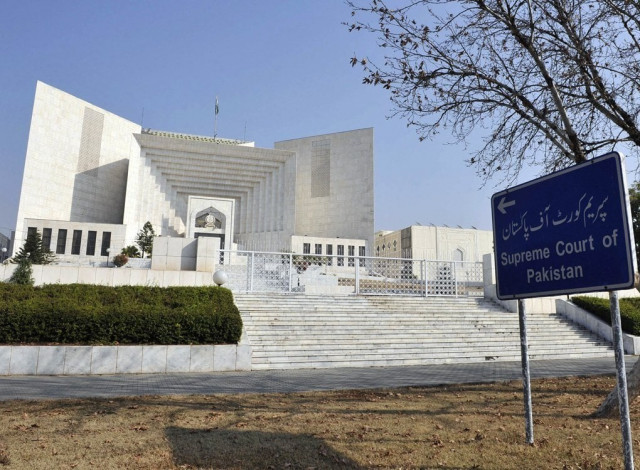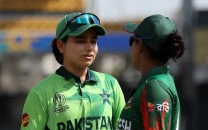SC gives guidelines on Article-63 (A) process
Top court suggests parliamentary party should ensure lawmakers are aware of its decision

The Supreme Court has given guidelines on the parliamentary party process to give directions under Article-63 (A) of the Constitution.
“One point that needs also to be addressed here is as to how the direction for purposes of para (b), if a decision in this regard is taken by a parliamentary party, is to be arrived at and communicated,” read a judgment authored by Justice Munib Akhtar on the interpretation and scope of Article-63 (A).
“A decision in terms of either of the paras of clause 1 of Article-63 (A), whether by a parliamentary party to issue a direction or the party head to proceed to the making of a declaration of defection, cannot be regarded simply as the exercise of a legal power in quite the same manner as the conferment of a statutory power on an authority or forum,” it added.
“The reason is that a decision under Article-63 (A) has necessarily a strong political element to it. Furthermore, especially in relation to an election or a vote of confidence or no-confidence, the political situation may be fluid and change by the hour. The decision to exercise the power may have to be taken on the spur of the moment. Therefore, it may not be appropriate to insist on the full panoply of procedural formalities and requirements that usually attend to the exercise of a statutory power,” the verdict read.
“Of course, to an extent clause (1) itself (in its proviso) lays down certain procedural requirements, and these are clearly intended to be of a mandatory nature,” it stated.
These guidelines are very crucial for the applicability of Article-63 (A).
Earlier, the PTI’s defective MPAs in the Punjab Assembly had claimed that no parliamentary meeting was held to vote PML-Q leader Parvez Elahi for the slot of chief minister.
Similarly, no direction was received by them from the PTI parliamentary party to vote for Elahi. However, the Election Commission of Pakistan (ECP) accepted the PTI references and de-seated these MPAs.
The apex court’s majority judgment however noted that some care must be taken before insisting on other such requirements or formalities including the holding of a meeting of the parliamentary party before it made a decision to issue a direction or an insistence that the internal procedures of the political party, if any, should be rigidly followed.
“What is clear is that the parliamentary party of a political party in an assembly is a well-defined body, known to all concerned. Since it is a body of parliamentarians, any decision in terms of para (b) must have the support of (at least) the bare majority of the parliamentary party,” the judgment read.
“The taking of the decision and its communication may therefore be established in such a credible manner as satisfies the forum concerned, and it would not be appropriate to lay down any hard or fast rule in this regard,” it added.
“The totality of the circumstances in each actual situation must be kept in mind and given due weight and regard. However, for guidance the following procedure may be suggested. A copy of the direction, duly supported by the signatures of the majority of the parliamentary party, should be deposited with the secretariat of the Assembly/House by or before the time it takes up for voting the matter to which it relates,” the verdict read.
“While [a] notice ought also to be given to the members of [the] parliamentary party of the direction through any feasible means (including modern communication and messaging facilities), the deposit of the same in terms just stated will be deemed notice to them all,” the judgment noted.
“In any case it should at all times be regarded as the responsibility of a member of a parliamentary party to satisfy himself, before voting or abstaining to vote on any matter covered by Article-63(A)(1)(b), whether his party has (or has not) issued a direction in terms thereof,” the verdict read.


















COMMENTS
Comments are moderated and generally will be posted if they are on-topic and not abusive.
For more information, please see our Comments FAQ